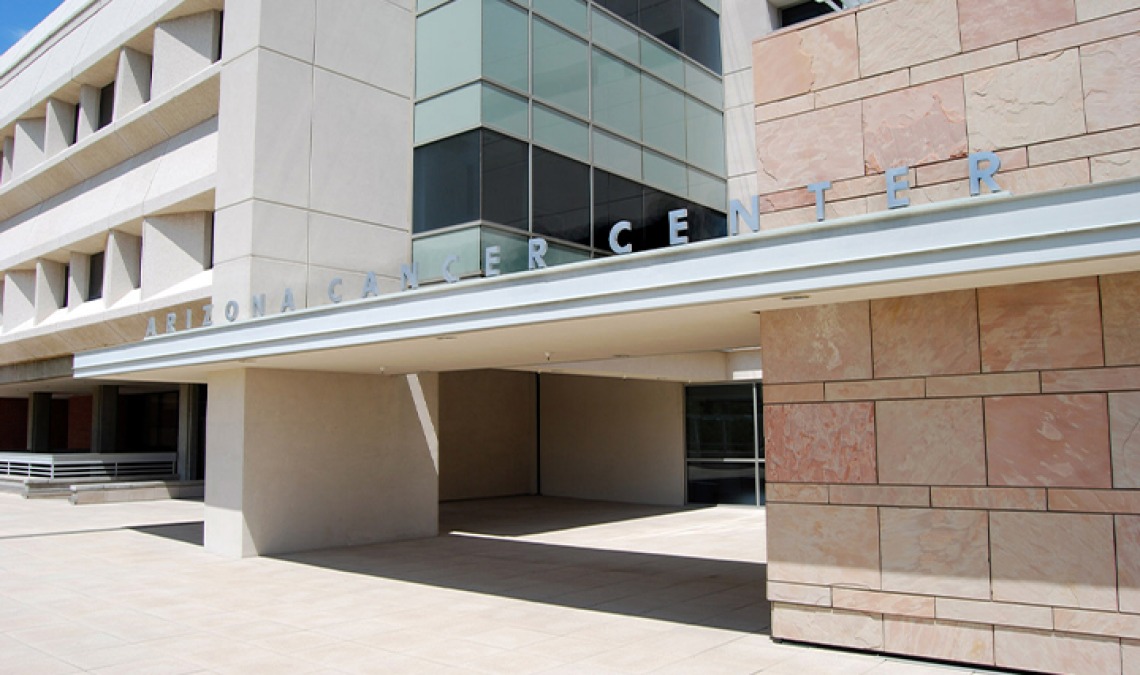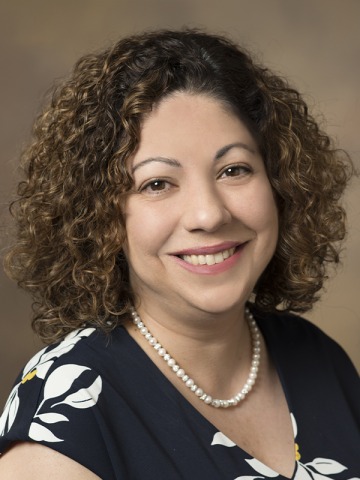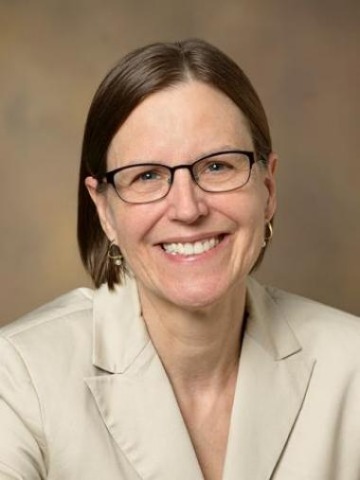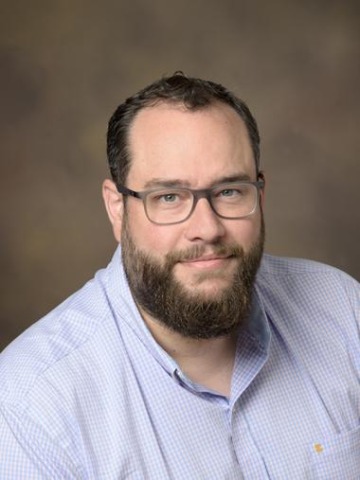Team Science Award Empowers GI Cancer Researchers to Think Boldly
UArizona Cancer Center researchers distinguished for their research in gastrointestinal (GI) cancers awarded “Sparking Bench-to-Bedside Team Science Project” award.

A group of researchers with diverse expertise in gastrointestinal (GI) cancers has been awarded $250,000 as part of the University of Arizona Cancer Center’s “Sparking Bench-to-Bedside Team Science Project” award.

The team of basic and translational scientists is led by Yana Zavros, PhD, shared resource director, tissue acquisition cellular and molecular analysis, and research member in the UArizona Cancer Center’s Cancer Biology program. Dr. Zavros submitted the application for the project, “Understanding the Tumor Microenvironment for the Early Detection and Treatment of GI Cancers.”
“We’re asking this team to think boldly,” said Joann Sweasy, PhD, the Nancy C. and Craig M. Berge Endowed Chair and UArizona Cancer Center director. “These are true experts in the field of GI cancer. This will be the space for them to come together, develop their projects and make impactful discoveries.”

Joann Sweasy, PhD
The Cancer Center award unites three projects under the same funding umbrella. The overarching theme for the projects is to better understand the tumor microenvironment that either predisposes or promotes GI cancer development, and to then translate the basic findings into improved detection and treatments.
These three research projects are focused on developing therapies and identifying biomarkers that can be used in the prevention and treatment of GI cancers such as colorectal, gastric and pancreatic cancers. Each project has basic scientists studying specific mechanisms of the cancer’s biology, with clinical faculty involved that are fundamental to developing the clinical trials and applying that knowledge to the clinic.
“The projects span early detection, resistance to targeted therapy, and metastasis and disease recurrence,” said Dr. Zavros. “They are structured in such a way that there is synergy and a partnership between basic scientists and clinical faculty.”
The first project concentrates on biomarker development in Hispanic populations to improve early detection and prevention of colorectal cancer. One of those will use a high throughput approach to develop new therapies for colorectal treatment. The second project explores therapies for pancreatic and gastric cancer that is among the highly resistant malignancies to immune therapies that have been successful in other cancers. Investigators will study the tumor microenvironment, in particular a unique immune cell known as myeloid-derived suppressor cell (MDSC) that appears to dampen the chemotherapeutic response to these immune therapies. The third project comprehensively investigates the cells within the tumor microenvironment to understand colorectal cancer metastasis, and identify drug responsiveness for the discovery of targeted therapies.

merchant-juanita
Two cores will be utilized by the team, including Dr. Zavros’ “BioDroid” program, which develops miniature organs with a realistic microanatomy, also known as organoids, in the lab. This is used in collaboration with the Tissue Acquisition Repository for Gastrointestinal and HEpaTic Systems (TARGHETS ) created by Juanita L. Merchant, MD, PhD. TARGHETS is a GI biorepository that collects samples from patients who undergo endoscopy. The second core will be led by Jennifer Hatcher, PhD, who will oversee the community and clinical resource core to ensure that representative samples and participants are being included in the studies.

Jennifer Hatcher, PhD, MPH, MSN
The foundation for the projects is based on an already existing group of GI investigators at the Cancer Center, known as the “Gut Group.” Dr. Merchant and Curtis Thorne, PhD, first developed the group by bringing together UArizona researchers across the cancer spectrum from basic scientists to clinicians that were interested in GI cancers. The Gut Group meets monthly to share updates from their specialties and plan future collaborations.

Curtis Thorne, PhD
One of the group’s collaborations was to apply for the “Sparking Bench-to-Bedside Team Science Project.” Internal and external reviewers carefully looked over the proposals submitted by various groups, but the Gut Team’s application was “absolutely at the top,” according to Dr. Sweasy.
The funding positions the team to apply for National Cancer Institute grants through a mechanism called Specialized Programs of Research Excellence (SPOREs). The SPORE grants are designed to enable the rapid and efficient movement of basic scientific findings into clinical settings, as well as to determine the biological basis for observations made in individuals with cancer or in populations at risk for cancer.
“This team science award is a natural progression for us,” said Dr. Zavros. “It brings together our individual projects focused on GI cancers, and now the goal for us is a SPORE grant to support these projects with more significant and longer-term funding.”
Of critical importance to the team will be the impact that its eventual findings could have on communities across Arizona, notably rural areas and specifically Hispanic and Native American populations. These populations are at greater risk for developing GI cancers because these diseases are often caused by dietary and environmental factors.
“Our research groups are uniquely positioned to study these individuals that are at higher risk,” said Dr. Zavros. “The funding is fundamental for moving the knowledge that we gain at the bench to really impact the treatment and improve the health of patients.”
Lead Investigators for the projects and cores include: Nathan Ellis, PhD, Peter Lance, MD, Juanita Merchant, MD, PhD, Ghassan Mouneimne, PhD, Rachna Shroff, MD, MS, Hina Arif Tiwari, MD, Curtis Thorne, PhD, Darren Cusanovich, PhD, Megha Padi, PhD, Aaron Scott, MD and Jennifer Hatcher, PhD, MPH.






